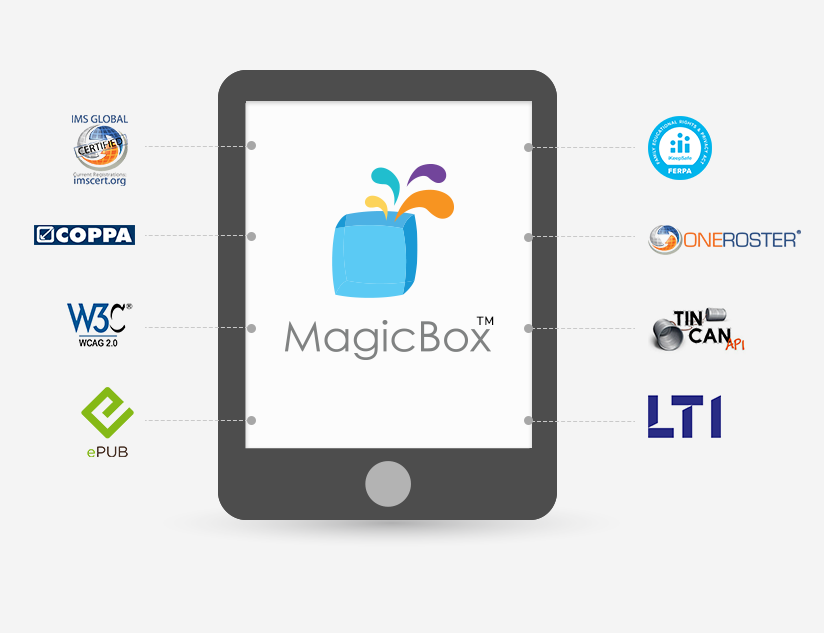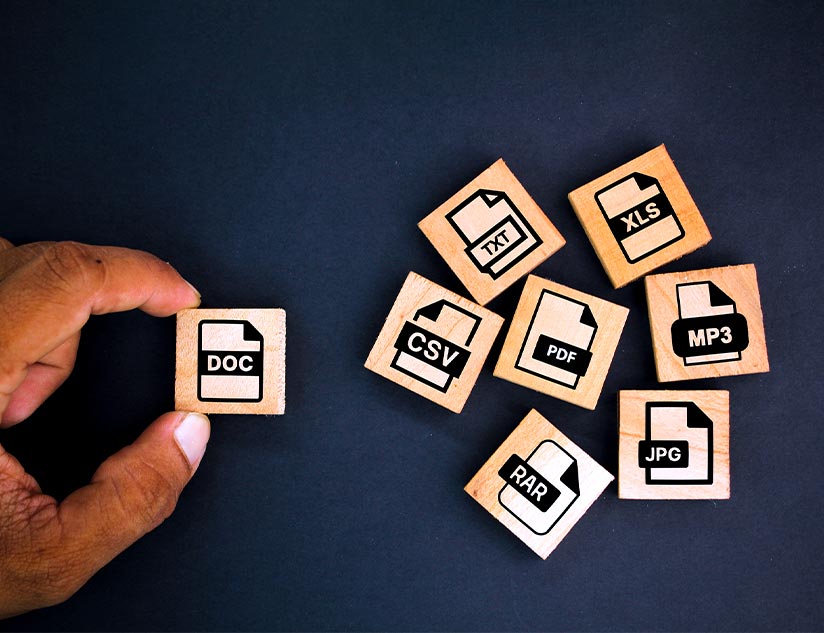Every industry has its own set of regulations that organizations, large and small, need to comply with. The education sector is no different. Both educational institutions and educational publishers need to ensure compliance with the policies and standards set by the concerned authorities. Failing to ensure compliance can lead to serious penalties. In fact, in 2018, non-compliance problems on average cost organizations $14.82 million in the US alone.
The good news is that with the help of MagicBox™ distribution platform, compliance with existing standards and regulations becomes extremely easy. These standards ensure that the learning content can be delivered efficiently across, while also helping with the accessibility of education. To help the education sector seamlessly adhere to these regulations, MagicBox™ offers the following compliances, all through its single platform:
1. Tin Can API
Tin Can API is often regarded as the successor to SCORM. Tin Can records and tracks the learning experiences of students, wherever such experiences might occur. While SCORM was limited to just laptops and desktops, Tin Can tracks learning on mobile devices as well. So, for any mobile learning platform, Tin Can compliance is essential. Tin Can also provides much more flexibility than SCORM. It allows you to complete tasks, such as delivery and tracking of eLearning content, using a native application and not just on a browser.
2. ePUB3
ePUB3 is the latest edition of the ePUB format, which is an eBook format that allows a wide array of rich features, including reflowable content. First released in 2011, ePUB3 has become one of the most popular choices when it comes to authoring and publishing eBooks. Some of the main advantages of ePUB3 are:
- Reflowable
An eBook in the ePUB3 format can adjust to different screen sizes effortlessly. This ensures that the learner does not need to scroll from one side to another, just to read a single page.
- Interactive
With ePUB3, publishers can add various interactive features, such as videos, audio, infographics and third-party links.
- Read-Aloud Features
ePUB3 also has the read-aloud feature. This allows publishers to ensure greater accessibility and engagement.
3. QTI
Questions and Tests Interoperability or QTI is considered the gold standard when it comes to e-assessment interoperability. It defines and identifies points of interoperability, protocols, and formats that help users save time and money during the creation and delivery of assessments. It enables the exchange of test content, result data, test construction tools, learning platforms, scoring/analytics engines, and assessment delivery systems.
4. LTI
LTI is another key interoperability standard, needed to create a coherent learning experience. The standard allows learning tools and courseware from various vendors to be launched with the help of a tool inside an application. The integration of LTI enables students and teachers to switch from one tool to another seamlessly. These tools can be about communication, learning or logging-in.
5. WCAG 2.0
Web Content Accessibility Guidelines are a set of recommendations that ensure that the content on the web is accessible. It makes content accessible for a wide range of people, including those with hearing loss, deafness, blindness and low vision, cognitive limitations, learning difficulties, speech difficulties, photo sensitivity, color blindness, movement problems, and a combination of these.
6. OneRoster
OneRoster standard is a Learning Information Services standard subset, which allows schools to smoothly and securely exchange grades, course material and roster information. It support the widely used .CRV mode for exchange, as well as REST, which is a real-time web service.
7. COPPA
COPPA stands for Children’s Online Privacy Protection Act. This act puts parents in control of the privacy of children below the age of 13. COPPA spells out the practices and regulations that websites must employ to protect the privacy of children online. For instance, companies covered under COPPA are required to get parental consent before collecting information from kids below the age of 13.
8. FERPA
Family Education Rights and Privacy Act or FERPA is a federal law created for the privacy protection of student education records. The law is applicable to all schools, which funding under an applicable program from the US Department of Education.
9. GDPR
The General Data Protection Regulation (GDPR) came into effect on May 25, 2018. It is a set of regulations that ensure the privacy and protection of data and standardizes data protection laws throughout Europe. GDPR is applicable to all website that attract visitors from the EU nations, regardless of where the website might be based.
By ensuring compliance with all these industry standards, MagicBox™ helps educational institutions and publishers provide the best and most accessible learning experiences. So, if you are looking for a platform that will help you seamlessly comply with all learning standards, contact us today.















